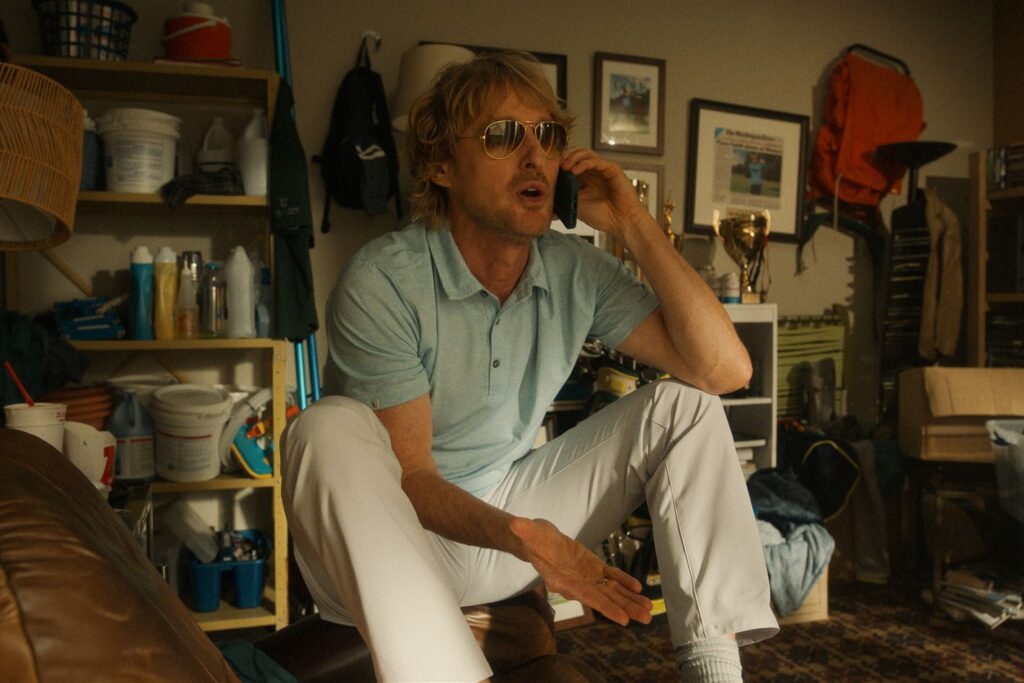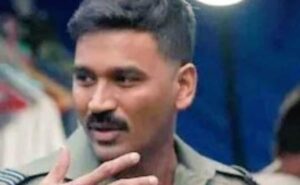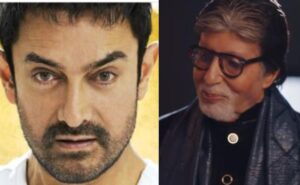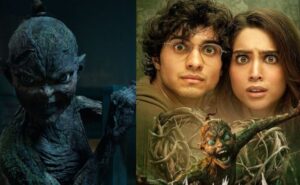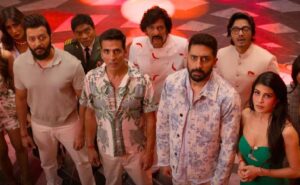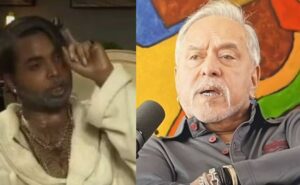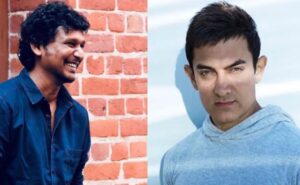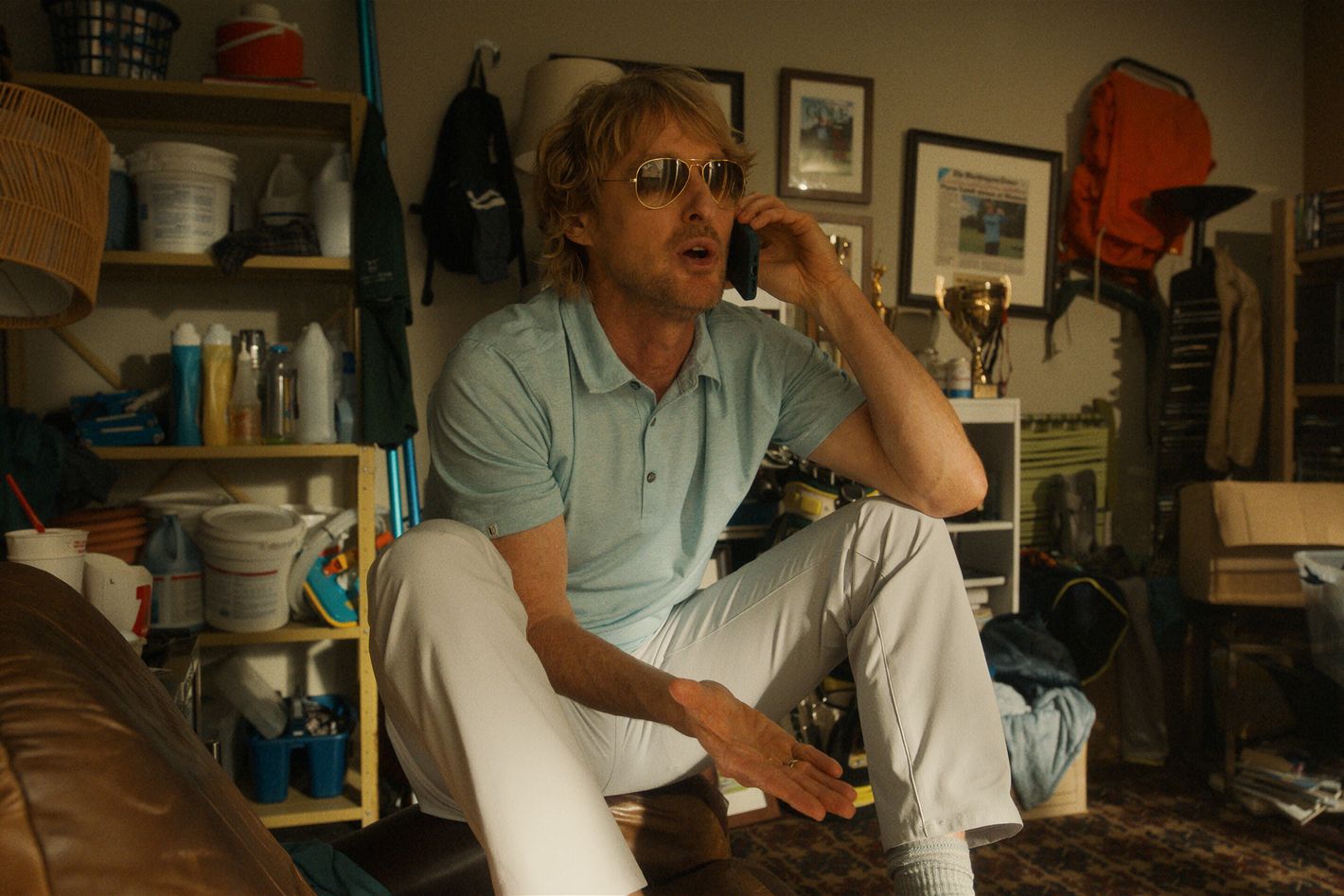
Apple TV+’s new sports show Stick feels good. It feels good so, so hard, with effort and with focus. Stick’s good feeling is not just superficial, either. It lives on a structural, aesthetic, performative, and almost molecular level. It is a show about golf and the incredible good feeling that comes with bombing that ball across the county line or tapping it perfectly across the green. Its colors are saturated and bright, and it feels good to stare at those immaculate golf shirts against verdant grass. It stars Owen Wilson, an actor whose screen presence screams “Aren’t we all feeling good? I sure am,” even when the character he’s playing is clearly lying to himself. It is a sports show. Victory will be wrenched from the jaws of defeat. Games will be won and lost, but what will really matter is playing with heart. And like so many TV series about feeling good, Stick starts from an obnoxiously omnipresent first principle: Everyone must start by feeling very, very bad.
TV and culture more broadly are now years into an apparently unkillable reliance on the trauma plot, and its presence has gone from notable, to pervasive, to rote. Every character has a past, and that past probably includes trauma. Every trauma is in an arithmetical relationship with the show’s events of the present. One deceased relative, plus time, minus coping, multiplied by the number of direct parallels with the character’s current circumstances, equals story. It has so much weight to it, so much staying power, because it is baldly true: People experience terrible things, and those experiences often help explain who they become.
It’s also precisely what makes shows like Stick so frustrating. The first episode fully outlines the premise. Owen Wilson, as Pryce “Stick” Cahill, is a divorced, washed-up former golf pro who blew up his career with an all-timer meltdown in the middle of a tournament and is now remarkably (but depressingly!) good at upselling overpriced golf clubs to moon-eyed hobbyists. His ex-wife, Amber-Linn, played by Judy Greer, needles him about how he’s gotten stuck in an underachieving limbo. His friend Mitts (Marc Maron) helps him hustle cash out of unsuspecting barflies. Things are bad! Until he happens upon Santi Wheeler (Peter Drager), a 17-year-old golf prodigy who’s tearing up the driving range with both talent and poorly hidden anger. Stick sees a future for Santi. So he picks himself up, convinces Santi it’s time to hit the road, and together with Mitts and Santi’s mom, Elena (Mariana Treviño), they set off in an RV to get Santi qualified for the big tournament.
Ah, but of course, Stick Cahill cannot just be a golf pro who blew up his career and is now trying to make good, and Santi cannot just be a 17-year-old with impulsivity issues. No, no — Stick needs to make a game out of why they are the way they are. Golf is a game played between your ears, a common truism Stick attributes to Arnold Palmer, and before Stick and Santi can heal their games, they’re going to have to heal themselves. Quickly, Stick reveals that Santi has been abandoned by his father, who taught him how to be a golf wizard, undermined his confidence by perpetually criticizing him and then disappeared. It’s no wonder Santi swings with a sense of vengeance, and Stick is very careful to make sure of it. There is no wonder. There is no mystery. There is no unspoken or unexplored emotional complexity. The math of it is pristine, and it plays out across the season like a Rubik’s cube getting solved, block by block, until everything matches up perfectly.
More egregious, though, is the way Stick presents the key to unlocking Stick Cahill’s ennui. A single man in possession of a midlife crisis must be in want of a traumatic backstory, and Stick is ready — eager — to provide. The scene comes at the end of the first episode, just as Stick has finally decided to embrace this new chapter of his life and hit the road with Santi. He makes the improbable decision to insert a DVD that’s like a montage of family highlights: Stick and Amber-Linn laughing as they move into their new home, being cute honeymooners. And then she is pregnant and then all their family videos involve a young son who has not been seen nor spoken of in the present day. Clearly the grief of losing him has driven everything that followed, including the meltdown and the divorce and the sad pro-shop hustling. The problem for Stick is not about the future; he’s already found Santi, figured out how to get out of his money hole, and made plans to get on the road. This is a sports show with bright colors and an upbeat opening-credits sequence starring Owen Wilson; this will feel good. The problem is, and always was, and always will be, about the past.
Just because it’s true doesn’t make it good storytelling, and that becomes all the more apparent when Stick does eventually start to settle down a bit. Santi’s plotline allows his past to arrive back into the present of the story, and once the gang adds Lilly Kay as Zero, a former bartender who becomes Santi’s love interest and golf caddie, the whole thing starts relaxing into the Bill Lawrence–style hangout show it so obviously longs to be. (Stick is such an egregious Ted Lasso rip-off that it’s honestly hard to believe Brett Goldstein isn’t lurking somewhere on the sidelines.) It even mostly manages to pull off the feat of making a boomer complaining about Zero’s they/them pronouns into a semi-charming runner, a challenge no other TV show should even consider if it does not have a performer with Marc Maron’s capacity for aggrieved compassion.
But the elements of the show that do start to gel only make the trauma-plot framework more annoying. Every time Stick starts to roll ahead into some momentum for the future, the story has to boomerang around into a reminder of where they’ve all been. Each step forward comes with two steps back. Every story development is matched with a past event and then sent off into a little narrative breakout room to discuss their similarities and differences, like a team-building exercise translated into scripted television. Or like a business-leadership conference where everything inexplicably has to be about golf — but perhaps that comparison is redundant.
More TV Reviews
The Owen Wilson golf comedy is feel-good TV built on a feel-bad foundation.

